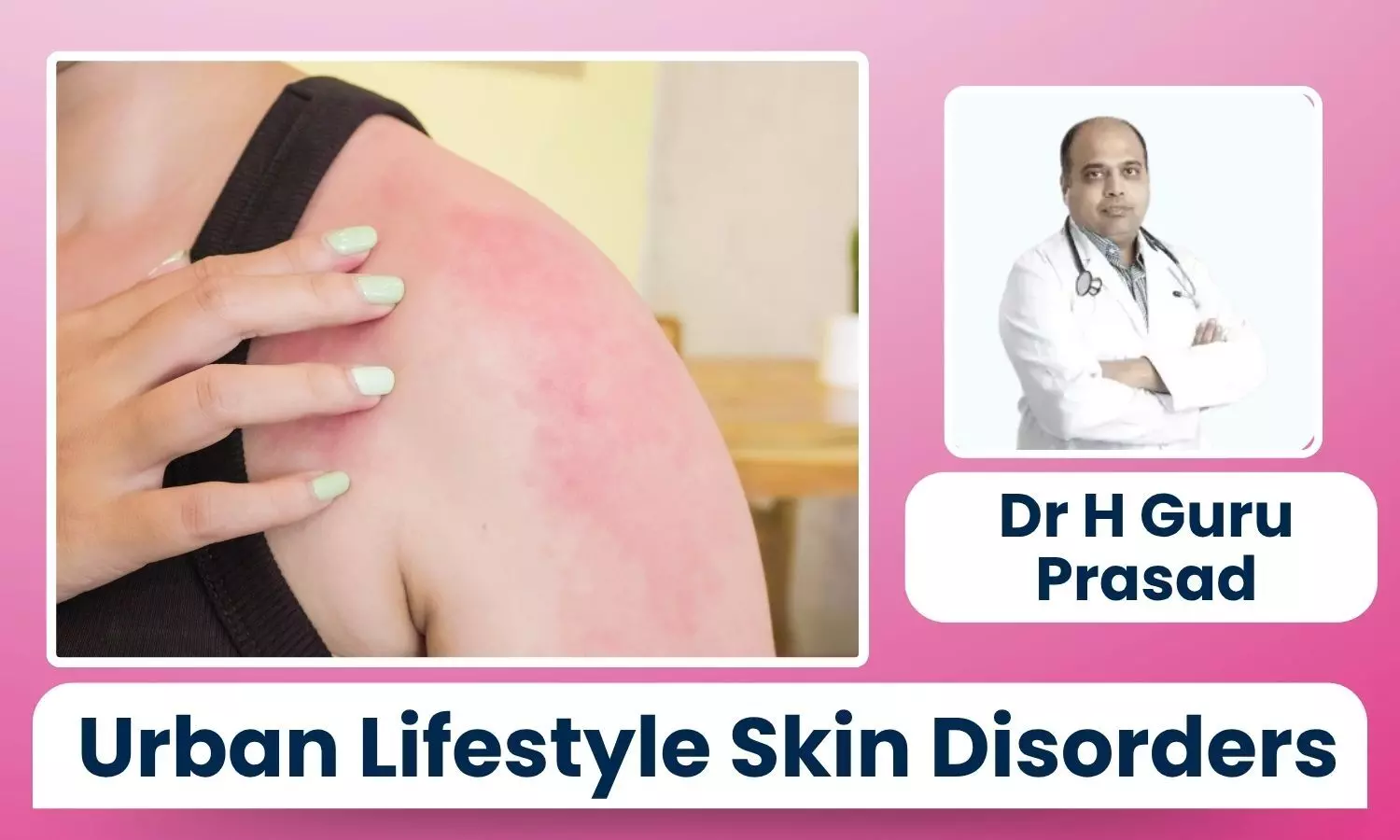Rise of Lifestyle-Linked Skin Disorders in Urban India - Dr H Guru Prasad

When people come to me with skin problems, they usually expect to hear words like “allergy,” “reaction,” or “infection.” What often surprises them is when I explain that the skin is not always the root of the problem.
Breakouts, rashes, or persistent itching can be the body’s way of reflecting how we live. In today’s urban India, where routines are rushed and stress is high, skin disorders have become a clear mirror of lifestyle.
The skin as a signal
Skin is the body’s largest organ, and it does more than cover and protect us. It often gives the first signs of imbalance inside — whether from sleep disruption, poor nutrition, hormonal changes, or weak immunity.
In cities, where fast-paced living has become the norm, conditions like eczema, psoriasis, hives, fungal infections, and acne are far more common. Many of these are not accidents of fate but are linked closely to the way we eat, rest, and manage stress.
Stress and the skin
Stress remains one of the strongest triggers. Long hours at work, traffic, deadlines, and constant digital exposure create a background of chronic stress. Hormones such as cortisol rise, the immune system weakens, and inflammation shows up on the skin.
Some patients notice acne that refuses to settle; others have sudden flare-ups of eczema, hives, or even hair fall during tense periods.
Managing stress is not just for the mind — it is also for the skin. Simple changes like daily exercise, yoga, deep breathing, or even a short pause away from screens can ease the load and improve skin health.
Food and skin
Diet plays an equally important role. Processed food, fried snacks, sugary drinks, and refined carbohydrates, which are common in city diets, fuel inflammation and worsen conditions like acne. At the same time, skipping balanced meals leaves people low on vitamins, minerals, and healthy fats — all of which are needed to keep skin healthy.
Regular hydration, fresh fruits and vegetables, whole grains, nuts, and proteins from pulses or lean meats help calm the skin from within. I often tell patients that the meals on their plate are as important as any cream or lotion they use.
Pollution and the city environment
Living in a polluted city means that dust, smoke, and microscopic particles land on the skin every single day. They clog pores, irritate, and speed up problems like pigmentation and premature wrinkling.
Long hours spent under air conditioning dry the skin further, while stepping out in the sun without protection adds more stress.
Basic measures go a long way: gentle cleansing twice daily, regular moisturising, and using a sunscreen suited to Indian skin. These may sound simple, but they work when done consistently.
Screen time and hidden triggers
Another new-age culprit is the excess of screen time. Blue light from phones and laptops is now linked to pigmentation and early aging. On top of that, late-night scrolling or gaming cuts into sleep, adds stress, and disturbs eating habits — all of which show on the skin.
Cutting screen time before bed, using night mode, and setting a routine for sleep can make visible improvements over time.
Common myths
A few mistaken beliefs often delay proper treatment:
“Skin problems are only cosmetic.” In truth, they can reflect deeper health concerns.
“Stronger creams will fix it faster.” Steroid creams used without supervision can actually worsen the problem.
“Good skincare is expensive.” The reality is that steady, simple care combined with healthy habits is more effective than pricey products.
Moving forward
Treating skin disorders is never just about ointments or tablets. It means paying attention to the bigger picture — how you sleep, what you eat, the stress you carry, and the environment around you. In many ways, good skin care begins with good self-care.
In urban life, where daily pressures cannot always be avoided, awareness is the first step. When you realise that your skin reflects your lifestyle, you can start making choices that bring real improvement. Balanced food, proper sleep, breaks from screens, and consistent protection for the skin offer results that last longer than any quick fix.
If your skin problem keeps coming back despite home remedies, don’t delay medical advice. The skin has its own language — and it is worth listening to. With the right support and timely lifestyle changes, most of these conditions can be controlled. What patients gain is not only healthier skin, but also a healthier life overall.
Disclaimer: The views expressed in this article are of the author and not of Health Dialogues. The Editorial/Content team of Health Dialogues has not contributed to the writing/editing/packaging of this article.


